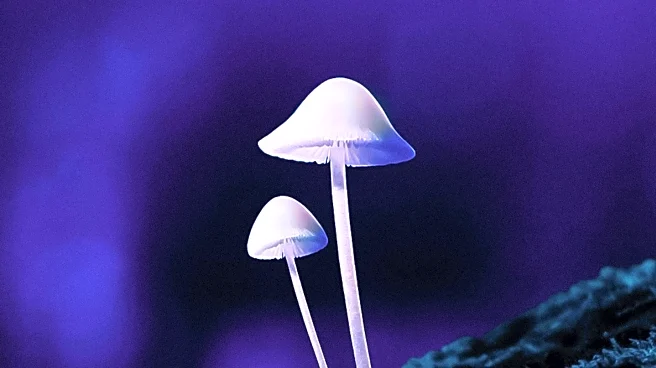What's Happening?
Researchers at the University of California, Davis, have found that psilocybin, a compound found in magic mushrooms, may exacerbate postpartum depression symptoms. The study, published in Nature Communications, used a mouse model to demonstrate that psilocybin increased anxiety and depressive-like behaviors in mothers and their offspring. The research highlights the nuanced effects of psychedelics, suggesting that psilocybin may not be suitable for all patient populations, particularly those experiencing perinatal mood disorders.
Why It's Important?
The study underscores the complexity of using psychedelics as therapeutic agents, particularly for mental health conditions like postpartum depression. With mental illness being a leading cause of pregnancy-related deaths in the U.S., the findings highlight the need for careful consideration of patient-specific factors, such as hormonal changes, when prescribing psychedelics. This research could influence future clinical guidelines and encourage more targeted approaches to psychedelic therapy, potentially leading to safer and more effective treatments for postpartum depression.
What's Next?
The study suggests further research is needed to understand the interaction between psilocybin and ovarian hormones, which may affect the drug's efficacy and safety. Clinical trials involving human participants, particularly postpartum women, could provide more insights into the potential risks and benefits of psilocybin therapy. Additionally, the development of alternative treatments for postpartum depression remains a critical area of focus, as researchers seek to address the urgent need for effective therapies in this population.










